One of the first things that struck me about “The Great Gatsby” was it’s size. It’s a teensy tiny book that I almost didn’t buy because it seemed like a waste of money, £7.99 for 113 pages! I’m not sure what I was expecting but I felt a little bit cheated right from the start because I’d heard so many good things about the book and couldn’t believe they could all fit into this dinky little book which is shorter than your average Mills & Boon. Despite my reservations I bought the book, and it ended up working out for me as I was able to read the book in a single sitting, the morning before I went to see the film, because obviously I couldn’t go and see the film without reading the book!
So, film or book, which side should you be on? Here are my thoughts:
After accepting how short “The Great Gastby” was, one of the first things that struck me about it was that it was a lot more readable than I had anticipated. It’s actually one of the most accessible books I’ve read from that era (including other books by Fitzgerald). What puts me off reading classics is that I always feel like they are so complicated or profound that I need to make notes just to keep up with them. “The Great Gatsby” is nothing like that. It’s sharp and to the point and wastes no space (hence the size). The first person narrative of Nick Carraway pulls you along and the basic plot is easy enough to follow- it’s like a baby classic! Unfortunately, I was expecting something a little bit more from this book; a little more meat on the bones, shall we say? I don’t know what you think but I’ve always been told that “The Great Gatsby” is F.Scott Fitzgerald’s greatest book, the way it has been built up in the press I was expecting nothing short of an epiphany after reading it!
Needless to say, this did not happen, at times I found it a little obvious and, dare I say it, flat. I found myself thinking ‘Ok, we get it, Gatsby’s not posh enough’ and wondering when something else was going to happen. This should have been, and to a certain extent was, a fascinating theme. I mean, Fitzgerald is basically calling the ‘American Dream’ false. Here we have our self made man, Jay Gatsby, who has built himself from dirt poor to filthy rich- in so many ways he’s the stereotype of the ‘American Dream’ only once he reaches the top, he finds out he’s still not good enough for America’s elite. That’s pretty scandalous stuff considering it seems to contradict all of the ideals you hear about American society. And it was interesting but the characters let it down, they are so 1 dimensional,they move around the novel like little mouthpieces for Fitzgerald’s angst. If someone had told me that “The Great Gatsby” was a satire I would have enjoyed it a lot more. Satire aims to hold up the follies and shortcomings of a person or society in order to try and bring about change. This is just what Fitzgerald does; he hold a light up to the hedonistic, superficiality of 1920s America and challenges it to be different. It’s much more powerful when you think of it that way don’t you think? As a satire it works, as a novel, it doesn’t.
So how about the film?
I try not to be led by what critics say about films but when a film is held back, and then held back again it’s hard not to let a little doubt creep in, and I don’t know about you, but I found myself wondering what was wrong with it. Nevertheless, I went to see it, in 2D, which may have been my first mistake. This film was so clearly made for 3D that it started to annoy me. Firstly because why on earth would they make “The Great Gatsby” in 3D? Secondly because it meant I couldn’t tell if it looked so much like a fake set because I wasn’t seeing it properly or if Baz Lurhmann did it deliberately to evoke the theme of the novel. If it’s the latter, that’s pretty inspired- but a niggling doubt tells me it was just because I saw it in 2D. One thing I did really like about it stylistically was the colour. Everything looked like that moment when “The Wizard of Oz” goes from black and white to colour. It’s that over-saturated, air-brushed, too bright to be real kind of colour and it gave the film a dream like quality that I thought really worked. Everything was TOO something- too crisp, too bright, too garish, too sparkly etc. It really emphasised the feeling of hedonism that saturated the whole film. That gets a big thumbs up from me.
Plus, Leonardo di Caprio’s performance…can we please just bow in the presence of greatness! It was amazing! He made Gatsby into this wistful, vulnerable, slightly psycho human being, he so totally inhabited the character, right down to the strange accent, that by the end I wasn’t think ‘oh look there’s Leo playing Gatsby’ at all. In fact, I liked his portrayal of Gatsby better than I liked the Gatsby Fitzgerald wrote in the book. The scene where Tom tells him he’ll never be good enough for Daisy was hands down the best moment of the film for me! Go Leo! Carey Mulligan also deserves a pat on the back for her Daisy. The novel didn’t give her, or the script writers, much to go on and I think she did well with what she had.
Now, however, it’s time to address the great big elephant in the room. You may have noticed him sitting in the corner…looking suspiciously like TOBEY MAGUIRE! Seriously, who picked Tobey Maguire for this film? I’ve seen more emotion coming for Kirsten Stewart impersonating a rock. Everything about him in this film just annoyed me; it’s like…if you could ignore him it would be a really good film, but you can’t because HE’S THE MAIN CHARACTER! I feel bad for saying it, but I have to because it’s true; he kind of ruined the film for me!
So there you have it. All in all both the book and the film get mixed reviews from me. I wasn’t blown away by the book, and although the film interpreted it quite well…it had Tobey Maguire the emotionless vacuum in it.
What do you think?
Did you read the book or see the film and love/hate them?
Am I just being too hard on poor Spidey?
Leave a comment and let me know!
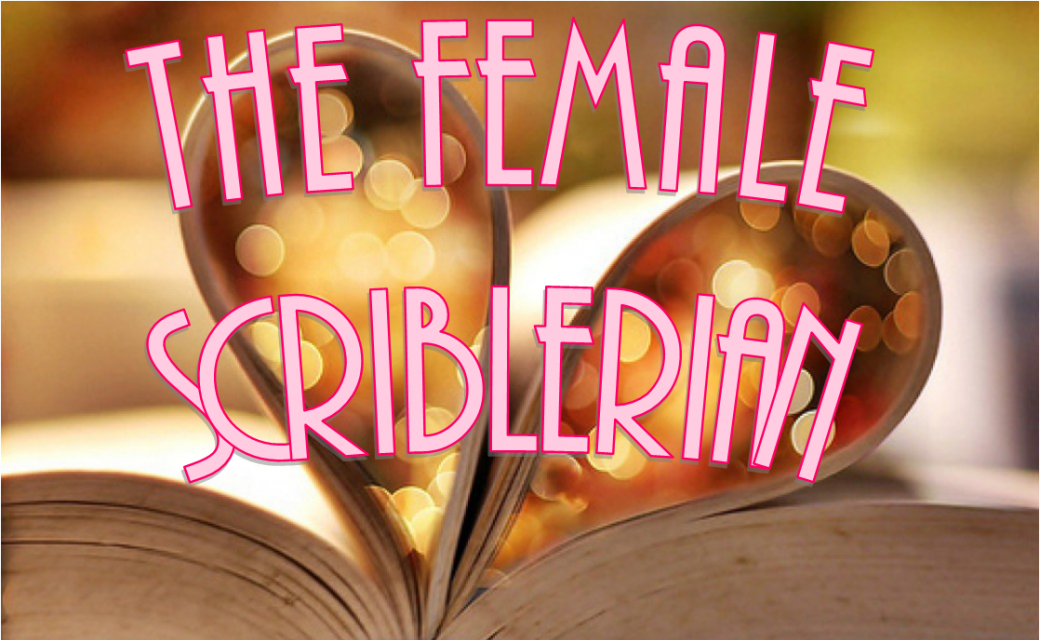
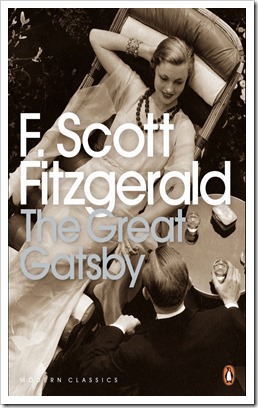
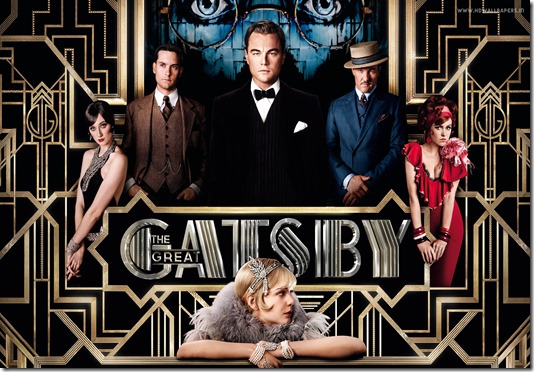
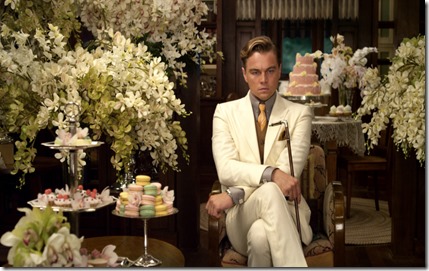
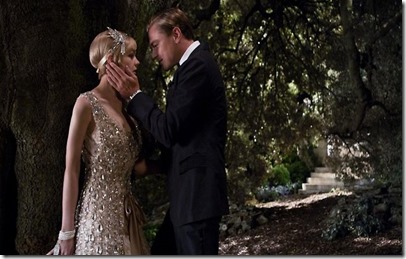
My first ever AS english exam was on this book and I got my highest ever marks for it, I think solely for mentioning the illusion of the ‘American Dream’, as basically every word in every sentence in every passage in every chapter seemed to “reflect that theme”. I re-read the book for the same objective as this article; to compare it with the film, as I had almost entirely forgotten the storyline in the 6 years from AS level (although I’m sure you can guess which certain theme I could remember…) I had been eagerly anticipating this film, not just because I love comparing (always to my disappointment of “how much the film leaves out”) books to films and the way a novel can be painted entirely differently to the one you know, but also because I love Baz Lurhmann’s eccentric directing style. However, to my disappointment it didn’t stay at the cinema long enough for me to complete my comparison, thus I cannot complete this response in the way I had hoped, but complete it I must! So what I will say is, on re-reading TGG (with an English degree under my belt) I appreciated it a lot more! Fitzgerald’s writing style, as thefemalescriblerian picked up on, has a certain ease in this novella that I didn’t find in another of his works, ‘Tender is the Night’, which I had to sweat through to finish. Why is that? Both books include rich people that from day-to-day seem to do very little. Possibly because TGG is kept short and sweet, therefore it knows where it is going and how soon it needs to get there. Once we know Gatsby’s past and his whole motive for being a success, the train is well in motion and at this speed we expect the derailment, crash and wreck to succeed one another just as quickly, which it does. There are, of course, moments of stillness, but what I previously took these to be simply as fuel to “the American Dream facade”, I now embraced as more meaningful descriptions of the idyllic world that the fragile human psyche is susceptible to. Fitzgerald describes some of the simplest pleasures of existence beautifully, in words that make such perfect sense when read, that I wonder how I didn’t conjure up such phrases before. Gatsby’s (and all the characters’) fragility is the epitome of Post Traumatic Stress Disorder, in which his therapy is trying to recapture the past. His naivety turns to a state of madness as he tries to take control of his fickle life and the fickle people in it. We all have those inward exploratory “what if?” moments, but usually do nothing more about them. Gatsby stops at nothing to outwardly live his ‘what if?’, and we satisfy our own ‘what if?’ moments by allowing ourselves to become absorbed in curiosity about what will happen to Gatsby, willing him to succeed or fail? I found the book (second time around) much more rich and apt in description than I ever remembered. I possibly also had more success with it this time because I didn’t have to study it or have my American-accented Engish teacher read passages to us in her soft lullaby voice that made me sleepy….
Bravo! What a great reply!
Seriously, I’ve been thinking about what to write back for ages because you said it all so well. There’s one thing you mentioned that I really want to pick up on. ‘Fitzgerald describes some of the simplest pleasures of existence beautifully’, what a great way to express it. This really translated into the film, one of the stills I included in the post is of Gatsby surrounded by flowers. In this scene he is waiting for Daisy to come into the room and he’s such an adorable bag of nerves that you can’t help but root for him. Whether it was Leo’s skill or Lurhmann’s directing the whole scene was so redolent of that simple, butterflies in the stomach, nervous-excitement that you get when you know you’ll see the person you like that it made me re-evaluate Gatsby in the book. He’s so sensitive and desperate for Daisy’s love because she is, to him, the symbol of success. He has spent his whole life trying to measure up to what he thinks she wants in a man and it is perhaps this simplicity that resonates with readers far more than the grander ‘failure of American Dreams’ trope.
Adding to your point about post traumatic stress. I think the whole 1920s could be viewed as a post traumatic reaction, a whole generation was having to rebuild and redefine itself, it’s almost like coming out of a terrible breakup. In my mind, this helps to explain why the excess and frivolity of the 20s always seems so hollow; it was a hedonistic mask to cover up a barely healed wound. Maybe that’s a bit much but that nihilistic drink to forget syndrome seems to permeate not just Fitzgerald’s work, but other contemporary authors like Evelyn Waugh and Virginia Woolf.
Thanks for the comment, it really got me thinking!